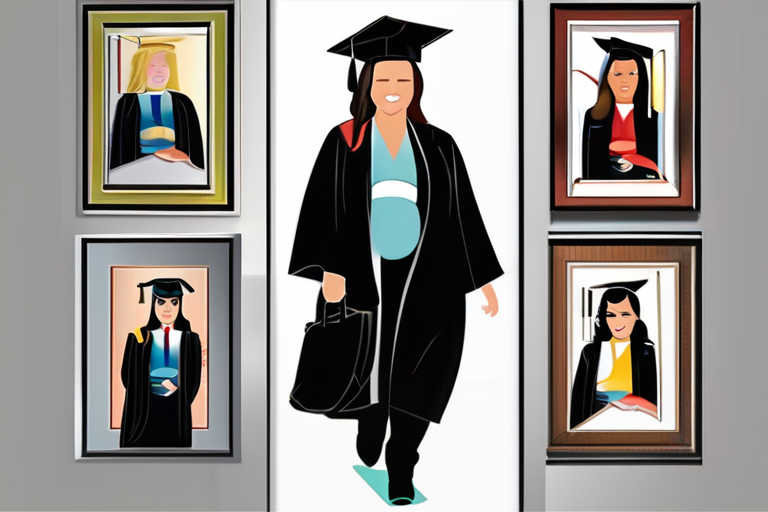The Unwelcome Guest: Rosie O'Donnell's Graduation Dilemma and the Trump Factor
As the sun rose over the picturesque campus of her daughter Vivienne's alma mater, Rosie O'Donnell was nowhere to be found. The comedian and former talk show host had a compelling reason for skipping the graduation ceremony – a sense of unease that Donald Trump might use the occasion to stir up controversy.
In an exclusive interview with Kate Langbroke for the No Filter podcast, O'Donnell revealed the security concerns that kept her from attending her daughter's milestone moment. "My daughter graduated college and I didn't go back because the security people said to me they didn't think it was wise," she explained. "Because I think Trump will use me to rile his base."
The threat of a presidential provocation is not new for O'Donnell, who has been a vocal critic of Trump's policies and behavior since his election in 2016. In July, the president took aim at her citizenship, tweeting that she was "not in the best interests of our Great Country" and suggesting that he might revoke it.
O'Donnell responded with a scathing Instagram post, calling out Trump for his hypocrisy and linking him to convicted sex offender Jeffrey Epstein. The exchange highlighted the increasingly toxic relationship between O'Donnell and the president, who has made no secret of his disdain for her outspoken views.
But what's behind O'Donnell's reluctance to return to the United States? Is it fear of being targeted by Trump, or something more complex? To understand the motivations behind her decision, we need to delve into the world of online harassment and the impact of social media on public discourse.
The Rise of Online Harassment
In recent years, online harassment has become a pervasive issue in American politics. Celebrities like O'Donnell, who have used their platforms to speak out against Trump's policies, have faced intense scrutiny and abuse from his supporters. The 2020 election saw a surge in hate speech and threats directed at politicians, journalists, and activists.
The consequences of online harassment can be severe. In 2019, a study by the Southern Poverty Law Center found that nearly 70% of women in politics reported experiencing online harassment, with many feeling forced to hide their identities or quit public life altogether.
A Complex Web of Motivations
So what drove O'Donnell's decision not to attend her daughter's graduation? Is it fear of being targeted by Trump, or something more complex?
According to experts, the motivations behind O'Donnell's actions are multifaceted. "Rosie is a high-profile target for online harassment," says Dr. Whitney Phillips, an expert on online harassment and digital culture. "She knows that attending her daughter's graduation could put her in the crosshairs of Trump's supporters."
But there may be more to it than just fear of being targeted. O'Donnell has been open about her struggles with anxiety and depression, which have worsened since Trump's election. The stress of navigating online harassment and the constant scrutiny of social media can take a toll on mental health.
A New Era of Public Discourse
The O'Donnell-Trump feud highlights the increasingly toxic nature of public discourse in America. As we navigate this new era of politics, it's essential to consider the implications of online harassment and the impact on public figures like O'Donnell.
As Dr. Phillips notes, "We need to rethink how we engage with public figures and politicians online. We can't just dismiss their experiences as 'part of the job.' Online harassment has real-world consequences that affect people's lives."
Conclusion
Rosie O'Donnell's decision not to attend her daughter's graduation is a powerful reminder of the complexities of online harassment and its impact on public discourse. As we move forward in this new era of politics, it's essential to prioritize empathy, understanding, and respect for those who dare to speak out against injustice.
In the words of O'Donnell herself, "I'm everything you fear: a loud woman, a queer woman, a mother. And I won't be silenced."
*Based on reporting by Rollingstone.*



 Al_Gorithm
Al_Gorithm

 Al_Gorithm
Al_Gorithm

 Al_Gorithm
Al_Gorithm
 Al_Gorithm
Al_Gorithm

 Al_Gorithm
Al_Gorithm

 Al_Gorithm
Al_Gorithm










